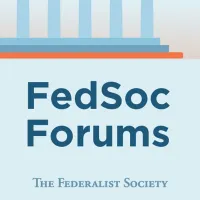View Transcript
Episode Description
In recent months, Texas Governor Greg Abbott announced a ban on “Sharia law and Sharia compounds” in the state, citing longstanding principles that U.S. and Texas law take precedence over conflicting foreign law. This position is reflected in the 2017 American Laws for American Courts statute and in an Attorney General opinion affirming that contracts violating Texas public policy cannot be enforced.
These commitments were tested in a North Texas family law case, where an Islamic prenuptial agreement called for disputes to be resolved under religious law. The Texas Supreme Court ultimately stayed the arbitration order and ordered review of the original arbitration agreement for "validity and enforceability."
Other recent developments - including video accounts of a Houston imam calling for boycotts of certain businesses and reports of a proposed Muslim-exclusive residential community (“EPIC”) - have prompted legislative responses such as HB 4211, which requires property transfer disclosures and ensures disputes are adjudicated under Texas and U.S. law.
How should courts weigh religious arbitration against constitutional and statutory protections? What legal tools exist to address disputes that implicate cultural or religious norms? How can Americans both respect religious diversity and uphold constitutional imperatives?
Featuring:
Qanta A. Ahmed, MD, Senior Fellow, Independent Women's Forum
https://www.qantaahmed.com/bio/
Professor Eugene Volokh, Thomas M. Siebel Senior Fellow, Hoover Institution, Stanford University
(Moderator) Karen J. Lugo, Founder, Libertas-West Project
These commitments were tested in a North Texas family law case, where an Islamic prenuptial agreement called for disputes to be resolved under religious law. The Texas Supreme Court ultimately stayed the arbitration order and ordered review of the original arbitration agreement for "validity and enforceability."
Other recent developments - including video accounts of a Houston imam calling for boycotts of certain businesses and reports of a proposed Muslim-exclusive residential community (“EPIC”) - have prompted legislative responses such as HB 4211, which requires property transfer disclosures and ensures disputes are adjudicated under Texas and U.S. law.
How should courts weigh religious arbitration against constitutional and statutory protections? What legal tools exist to address disputes that implicate cultural or religious norms? How can Americans both respect religious diversity and uphold constitutional imperatives?
Featuring:
Qanta A. Ahmed, MD, Senior Fellow, Independent Women's Forum
https://www.qantaahmed.com/bio/
Professor Eugene Volokh, Thomas M. Siebel Senior Fellow, Hoover Institution, Stanford University
(Moderator) Karen J. Lugo, Founder, Libertas-West Project
